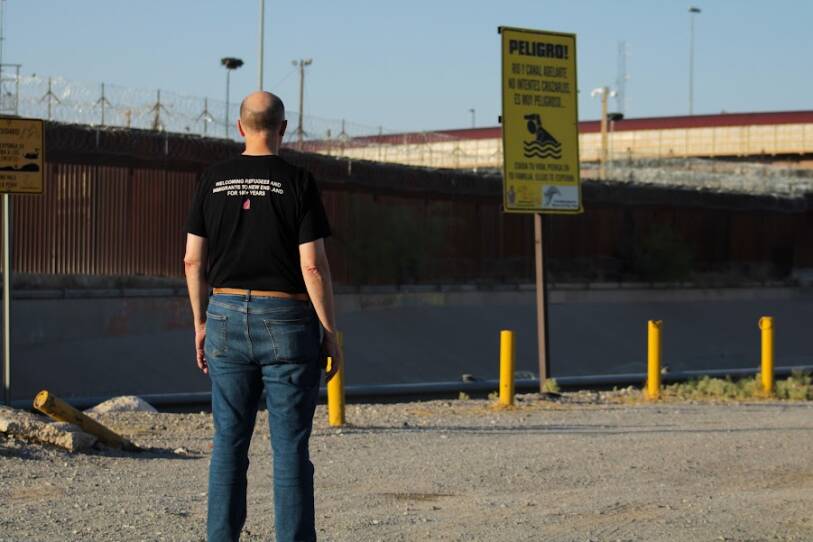A fact-finding mission to the Mexico-U.S. border by a New England-based refugee agency and the U.S. Committee for Refugees and Immigrants found that recent changes have slowed the flow of migrants entering the United States.
“What we saw was a much quieter border than is depicted in the media. We saw a very ordered border, and we also saw people desperate to come to the United States that were having trouble getting through the CBP One app,” said Jeff Thielman, president of the International Institute of New England, which partnered with USCRI to release the report.
The agencies say President Joe Biden’s asylum restrictions implemented in June have contributed to migrants living in dangerous conditions for extended periods of time, since the legal immigration avenues have long waits. The report recommends the Biden administration rescind its June policy.
The Biden administration’s Interim Final Rule — which is being challenged in federal court — significantly limited conditions for asylum eligibility and left asylum seekers to wait in other countries for appointments with border patrol through the CBP One App.
USCRI and IINE’s report, called “ Mariposas de la Frontera ” [butterflies of the border], found that while the Biden administration’s new policies led to increased demand for appointments through the CBP One App, availability remained stagnant. The report authors found people who had waited over nine months for an appointment.
The agencies say those procedures “engender an environment for criminal actors to abuse asylum seekers and migrants.”
During their fact-finding mission, both groups went to meet-up spots for migrants along the border. Shelters they visited had significantly fewer people than usual. Asylum seekers they met shared stories of struggles getting an appointment, and experiencing extortion, kidnappings and sexual violence in Mexico.
Leticia Herrera, director of the Tijuana shelter Pro Amore Dei, told USCRI researchers what one of the families there experienced before they got to the shelter: “…They are detained, taken to a stash house, and beaten. A woman was raped twice, the man was beaten, and their daughters were aware of it.”
Herrera said the U.S. should prioritize accepting traumatized asylum seekers over providing financial support to shelters in Mexico.
“If you were to ask me right now and say, ‘You know what, the [$10,000] check, or 20 families, ‘I would say, keep the check and take the 20 families,'” Herrera told USCRI. “I wouldn’t think twice because, for me, they are suffering. It’s as simple as that.”

Aaron Nodjomian-Escajeda, senior policy analyst with USCRI, said the groups also uncovered that some nationalities were getting “preferential treatment,” and “most of the nationalities that were getting appointments quicker were not from Latin America or the Caribbean.” The report also raised concerns about discriminatory practices for families and LGBTQIA+ asylum seekers.
“We can’t stay cooped up here, our life doesn’t revolve around four walls. (We’re) waiting for asylum, waiting for the United States to give us a chance to start over. We said, ‘I don’t think it will take long,’ and look at us here five, six months later—I think it takes too long,” a Mexican trans woman seeking asylum told researchers.
Nodjomian-Escajeda said the delay in appointments has a negative impact on migrants’ well-being, because the trauma can compound.
“I think the earlier that individuals have access to the asylum system, have access to mental health as well as other type of services, the easier and better it will be to integrate newcomers into into the different communities, such as Massachusetts,” he said.
Most of the migrants currently in Massachusetts were lawfully admitted into the U.S., Thielman said. He explained it’s hard to track how many immigrants are coming to the commonwealth, but there has been a slight dip in new arrivals who qualify for state shelter.
“I think it is important for people in Massachusetts to to understand that it’s not really a tighter border that’s going to help the state of Massachusetts,” said Thielman. “What’s going to help the state of Massachusetts is a better system to support people lawfully admitted to the United States.“





